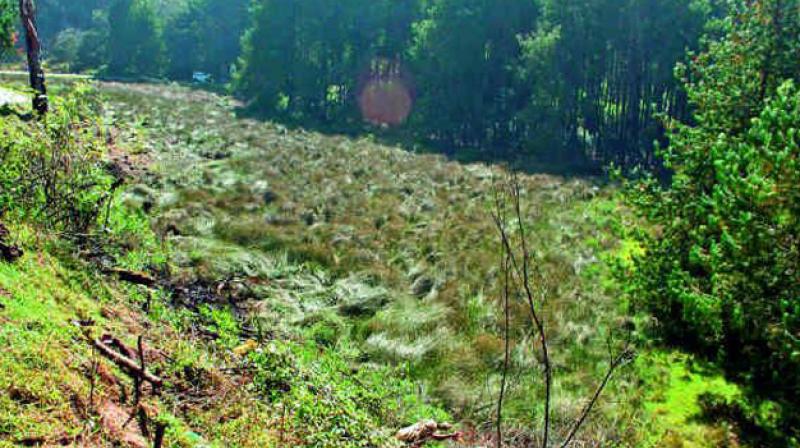Guest column: Forest conservation is top priority
The Paris accord on climate change had resolved to put a cap of a 2 degree rise in temperature.

Industrialisation and urbanisation in the post World War era across the globe have led to increasing emissions, pollution and deforestation. The combined effect has resulted in burning of fossil fuel in an unsustainable manner and rise in atmospheric temperature. The Paris accord on climate change had resolved to put a cap of a 2 degree rise in temperature, but a few developed countries and many developing countries are not on board, although it’s important for all countries to reduce their industrial emissions and burning of fossil fuel to retard the acceleration of global warming.
Presently you are seeing many strange phenomena in nature. On and off there are floods, droughts, landslides, high velocity winds, cyclones and so on. While drought is linked to loss of agricultural production, water scarcity and famine, the uncertainties in wind direction and rainfall, rise in temperature and sea level and storm surges are all on account of unprecedented carbon pollution and global warming. The only way to contain this is to cap it at two degrees Celsius above pre-industrial levels as the future will depend on whether humanity succeeds in minimising green house gas emissions or not. But international communities are not united in achieving this goal.
Going by scientists tropical coastal regions are suffering the most. The recent FANI cyclonic storm along the Odisha coast saw winds that had a velocity of 200 km per hour, marginally lower than the velocity of 225 km per hour registered during the super cyclone along the same coast in 1998. Over a period of time we have lost natural vegetation like dry evergreen forests and mangrove forests along the Coromondel coast, where land use patterns have changed rapidly. Despite the frequent cyclonic impact in the region, the Coastal Zone regulations under the Environment (Protection) Act 1986 have been violated. And sadly, afforestation along the coast is proceeding very slowly.
In Indian conditions, coastal areas and the dry mainlands are both likely to bear the brunt of climate change. Areas along the east and west coasts of peninsular India are at greater risk. The cyclonic impacts on the east coast are steadily becoming more frequent with the passage of time. With the peninsula sloping from west to east, the rivers originating in the Western Ghats are east flowing and join the Bay of Bengal. Also, the eastern coastlands are more flat and are fertile. Their large population has taken its toll on the forests. So conservation of forests and wildlife is important for slowing the process of climate change. Multiple agencies will have to be involved in retarding its impact.
— B K Singh, Former Principle Chief Conservator of Forests (Head of Forest Force) Karnataka

